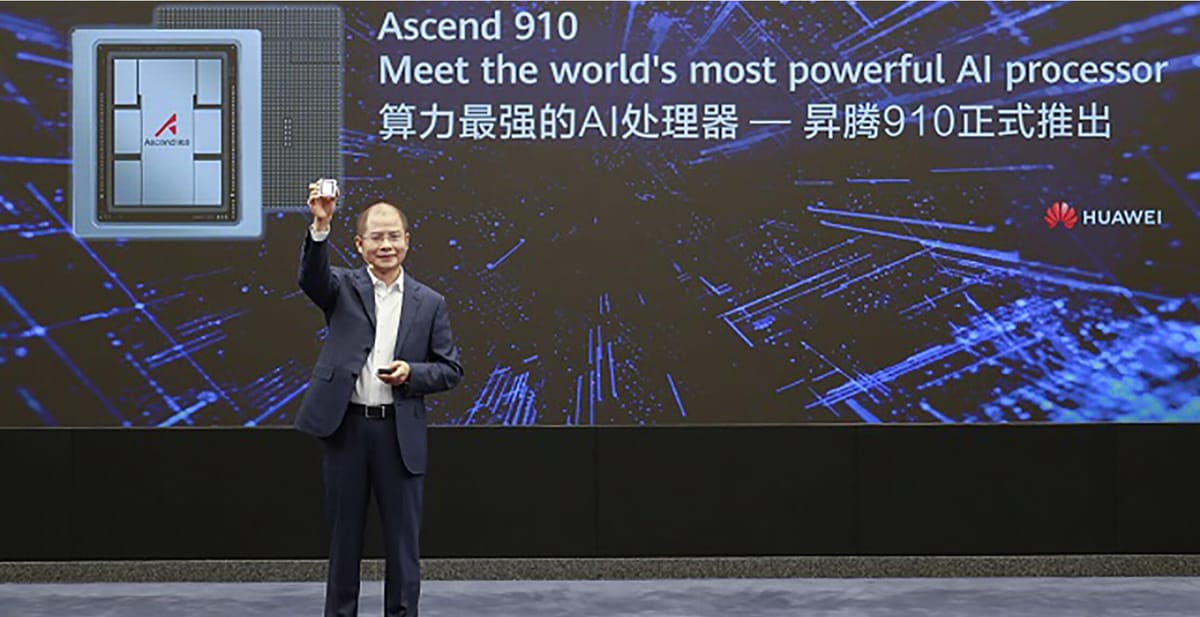
Huawei's plans to compete with NVIDIA's advanced AI chips have stalled, with the Chinese giant now pushed three generations behind due to US sanctions, leaving their technology significantly outdated.
Why It Matters: This setback impacts not only Huawei but also China's broader ambitions to lead in AI technology. As Huawei struggles, it highlights the widening technological gap between China and the US in AI capabilities.
The News: Huawei Technologies is developing its next two Ascend AI processors using the older 7-nanometer (nm) process. Meanwhile, Taiwan Semiconductor Manufacturing Company (TSMC), the chipmaker for industry giants like Apple and NVIDIA, expects to mass-produce cutting-edge 2nm chips by 2025. Huawei is expected to remain stuck at 7nm until at least 2026.
- The Backdrop: The US has imposed strict export controls, preventing Huawei and its partners from accessing the latest chipmaking technologies. ASML, a key Dutch supplier of chip equipment, has been blocked from selling its most advanced extreme ultraviolet (EUV) lithography machines to China.
- Production Bottlenecks: Huawei's production partner, Semiconductor Manufacturing International Corp. (SMIC), faces difficulties with even 7nm chip yields. These struggles are exacerbated by the forced use of older, less advanced equipment and domestic alternatives.
The Challenge: Without access to EUV technology, Huawei is resorting to multi-patterning techniques with older deep ultraviolet (DUV) systems, which involve more exposure steps and risk higher errors. This workaround is neither efficient nor cost-effective for producing advanced chips, and analysts suggest it's unlikely to achieve profitable yields at smaller scales like 5nm or below.
Broader Context: This situation underscores the effectiveness of US sanctions in halting China's semiconductor ambitions. Huawei had been central to Beijing's push for self-sufficiency in AI and chip technology, but its current struggles reflect the challenges of building a globally competitive supply chain.
- Ripple Effects: The lack of progress doesn't just affect Huawei's smartphone and AI chips. It also threatens China's AI development timeline. China remains dependent on older technologies while US companies like NVIDIA continue to advance.
- What's Next: Huawei is set to unveil its new Mate 70 smartphone next week, but there's notable silence about any advancements in the chips powering the device—a sign of ongoing difficulties.
The Bottom Line: Huawei's fight to compete in the AI chip race shows just how potent US-led export restrictions have become. The Chinese tech giant is falling further behind, and unless something changes dramatically, it will continue to face an uphill battle against Western technological dominance.
What we're watching: Whether China can develop domestic alternatives to restricted foreign semiconductor equipment — a crucial factor in its push for tech self-sufficiency.

